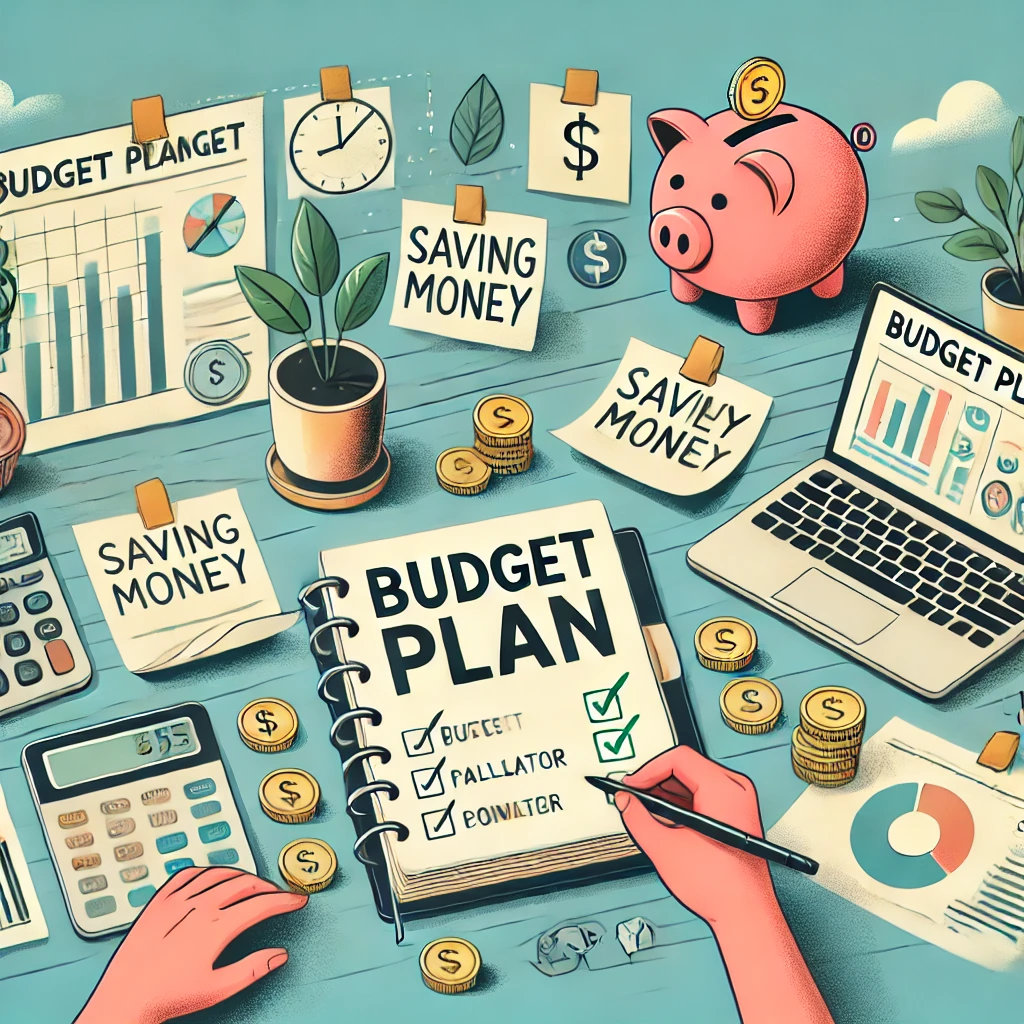Managing money can feel overwhelming, but with the right knowledge and tools, anyone can take control of their finances. Understanding personal finance and budgeting is the first step toward financial stability, reducing stress, and achieving long-term goals. Whether you’re looking to get out of debt, save for the future, or simply manage your expenses better, this guide will set you on the right path.
Understanding Personal Finance
Personal finance encompasses everything related to managing money, including income, savings, investments, and expenses. It involves making informed financial decisions that align with your goals and lifestyle.
At its core, personal finance is about balance—earning money, spending wisely, and saving for the future. Many people struggle with financial literacy, but learning the basics can transform your financial well-being.
Why Budgeting is Essential
Budgeting is a powerful tool that helps you control your money instead of letting your money control you. It allows you to track where your income is going, prioritize essential expenses, and avoid unnecessary debt. A budget is not about restriction; it’s about freedom—knowing that you can cover your expenses while still working towards financial goals.
How to Create a Simple Budget
A budget doesn’t have to be complicated. Follow these steps to build a simple yet effective budget:
- Calculate Your Income: Determine your total monthly income, including salary, freelance work, and passive earnings.
- List Your Expenses: Categorize your expenses into fixed (rent, insurance, loans) and variable (groceries, entertainment, dining out).
- Set Financial Goals: Define short-term (paying off credit card debt) and long-term (saving for retirement) financial objectives.
- Use the 50/30/20 Rule: Allocate 50% of your income to necessities, 30% to wants, and 20% to savings and debt repayment.
- Monitor and Adjust: Track your spending and adjust your budget as needed to stay on course.
Smart Money Management Tips
- Track Your Spending: Use apps like Mint, YNAB, or PocketGuard to monitor where your money goes.
- Cut Unnecessary Expenses: Identify areas where you can save, such as canceling unused subscriptions or cooking at home.
- Build an Emergency Fund: Aim for three to six months’ worth of living expenses to cover unexpected costs.
- Pay Off Debt Strategically: Use the snowball or avalanche method to clear debts efficiently.
- Automate Savings: Set up automatic transfers to ensure consistent saving habits.
Common Budgeting Mistakes to Avoid
- Not Tracking Expenses: If you don’t know where your money is going, you can’t control it.
- Setting Unrealistic Goals: Be realistic about what you can save and spend to avoid frustration.
- Ignoring Small Purchases: Little expenses add up and can derail your budget if left unchecked.
- Failing to Adjust Your Budget: Life changes, and so should your budget. Review it regularly.
Building Financial Discipline
Discipline is key to financial success. Stick to your budget, resist impulse spending, and focus on long-term benefits rather than short-term gratification. Financial discipline leads to better money habits and long-term security.
Investing Basics for Beginners
Once you have a budget and savings in place, consider investing to grow your wealth. Start with low-risk investments such as index funds or retirement accounts like a 401(k) or IRA. Investing early allows compound interest to work in your favor.
FAQs
What is the best budgeting method for beginners?
The 50/30/20 rule is a great starting point, but you can customize it based on your needs.
How much should I save each month?
Aim to save at least 20% of your income, but any amount is better than nothing.
Should I pay off debt or save first?
It depends on your situation. If your debt has high interest, prioritize paying it off. Otherwise, build an emergency fund first.
How do I stay motivated to stick to a budget?
Set clear financial goals, reward yourself for milestones, and remind yourself of the benefits of financial security.
What are some good budgeting apps?
Mint, YNAB (You Need a Budget), and PocketGuard are popular and effective choices.
How do I reduce my monthly expenses?
Cut unnecessary subscriptions, cook at home, use public transport, and shop smartly.
Final Thoughts
Personal finance and budgeting are essential skills that can lead to financial freedom and security. By creating a budget, tracking your spending, and building healthy money habits, you can take control of your financial future. Start today, stay consistent, and watch your financial situation improve over time.
